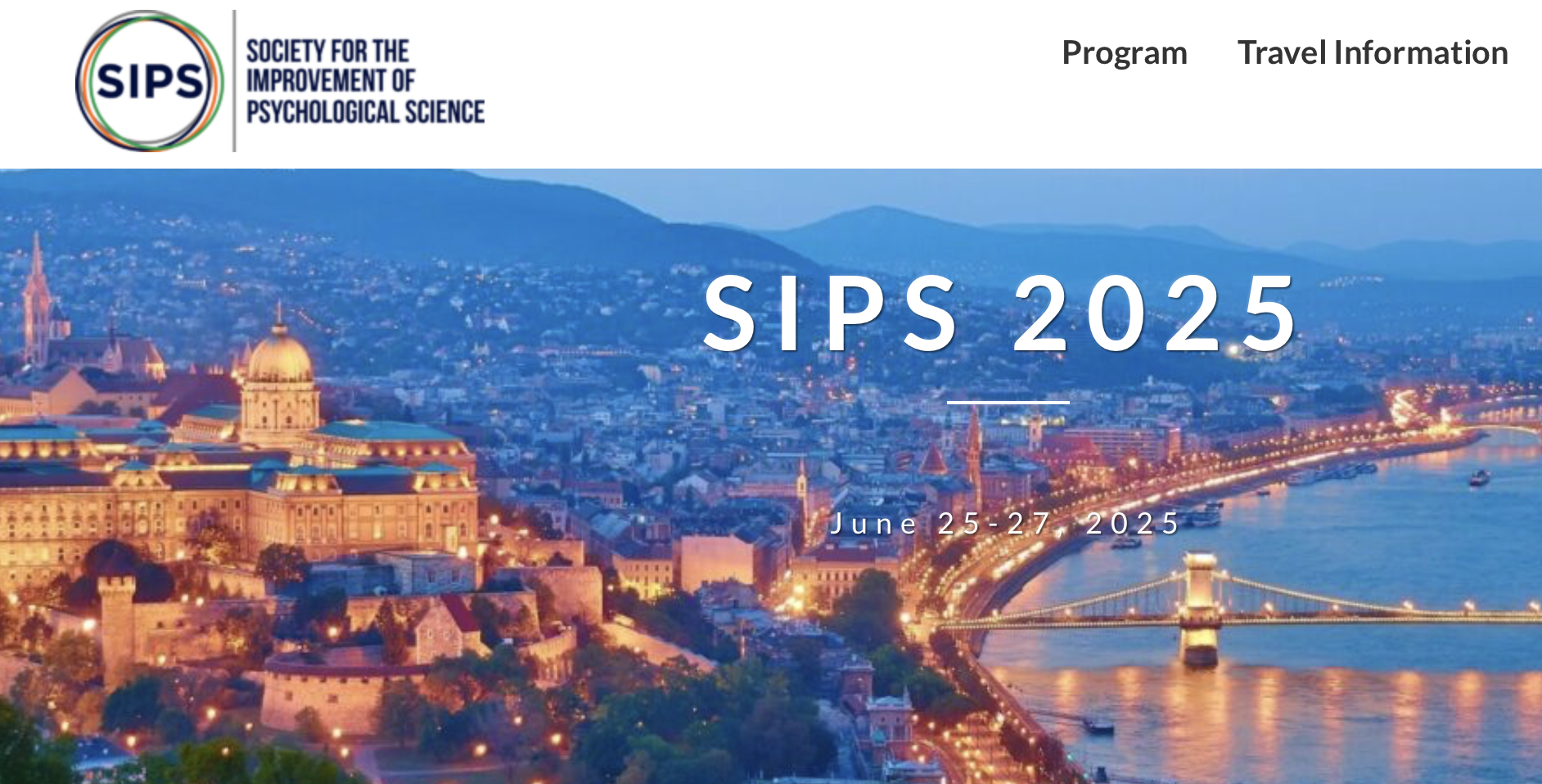
I am a member of the Society for Improvement of Psychological Science (SIPS) – have been since 2017. I joined their yearly conferences every other year starting in 2017, but I will not be joining the 2025 conference in Budapest, Hungary. For me, the big selling point of SIPS are the people – the location choice for 2025 (unintentionally) signals that some people are less important.







